How to Keep Young Athletes Motivated in Their Training Program

Let’s admit it: many athletes struggle to find motivation for their training. Experts from the University of London and the National Research Council of Italy note that it’s common for sports professionals to experience sudden declines in their motivation. Though many think that incentives are all you need for a boost of inspiration, the researchers reveal that numerous subjective factors influence motivation, including one’s self-confidence and standards regarding their athletic performance.
As such, it can be difficult to fuel motivation in younger athletes who are still building their confidence and meeting their own standards. So if you’re a parent, coach, or a fellow athlete who wants to motivate a young athlete, here are a few strategies that you can do:
Boost their confidence and hope for success
As previously mentioned, one’s confidence levels and standards can go a long way in boosting their motivation.
Researchers from the University of Bern’s Institute of Sport Science point out that young athletes with high hopes for success and a lower fear of failure are more likely to have greater motivation and performance. Meanwhile, young athletes with a high fear of failure will lose motivation more often than their peers. Indeed, it can be hard to encourage young athletes to swim or run if they don’t think they have a fighting chance. By reminding them of their skills and fueling their confidence, you can boost their confidence and give them more motivation to train.
Encourage them to share their goals with others
Young athletes can also build their confidence and lower their fear of failure by simply sharing their goals with others.
While it can be great to share these goals with parents or friends, our article entitled ‘5 Tips for Regaining Motivation for Triathlon Training’ recommends discussing these dreams with someone who has a higher status than the young athletes. Young athletes will feel more motivated to prove themselves to their triathlete idols after discussing these goals. These experienced athletes can even offer extra encouragement to the young athletes, thus further boosting their motivation to train.
Manage their social media consumption
It’s not surprising if young athletes use their social media accounts to share their goals with others.
Unfortunately, Maryville University’s social media safety guide points out that 54% of teens overuse their cellphones and 41% overuse social media apps. While it can be fun for them to make plenty of videos or regular posts about their training goals, social media addiction and the Fear of Missing Out can get in the way of their training, sleep, and other day-to-day activities. Social media is also a prime outlet for cyberbullying, which can come from inside the team, and this can have a huge impact on individuals. Coaches need to be able to spot this and act quickly. While social media consumption can't be controlled, it’s recommended that young athletes set time limits for their browsing so that they will be more motivated to put down their phones and get to their training.
Set aside some time for daily meditation
Meditation may seem like the last thing that athletes would need. However, this mind training can offer plenty of benefits, especially when it comes to combatting young athletes’ social media addiction or lack of confidence.
In fact, an article written by Stewart Spiessens regarding meditation explains that athletes can clear their minds and feel more at ease by doing mental exercises like meditation. Young endurance athletes can even add visualization techniques to their daily practice to ease pain, build their endurance, and speed up their recovery. Additionally, these visualizations can help them focus better on their goals and chances of success.
Allow them to train in a group setting
If the young athlete is training alone, it may be time to look for someone to accompany them in their training.
This may seem counterintuitive because swimming, running, and cycling are individual sports. However, kids, teens, and young adults may be more inspired and motivated when they’re training with peers who share the same goals. Their training buddies can even hype them up and make them feel more confident in their abilities, thus boosting their ability to show up to training on a regular basis.
Improve the leadership skills of their coaches
Aside from changing their training setup, it may also be time to take a good look at their coaches.
Research published by Sage Journals, by Queen’s University and the Universidad Politécnica de Madrid, discovered that adolescent athletes are more intrinsically motivated to participate in training when they have a coach with transformational leadership skills. These coaches are more likely to empower, inspire, and challenge their athletes. By finding or becoming a source of empowerment, you can also fuel the intrinsic motivation of young triathletes, cyclists, swimmers, and more.
It can be hard to feel motivated every day, but the good news is that there are surefire ways to fuel one's motivation. Through these tried and tested strategies, you can encourage young athletes to show up in their training program and excel further in their own sport.
Written by Annie Jubelle Charlton

Let’s admit it: many athletes struggle to find motivation for their training. Experts from the University of London and the National Research Council of Italy note that it’s common for sports professionals to experience sudden declines in their motivation. Though many think that incentives are all you need for a boost of inspiration, the researchers reveal that numerous subjective factors influence motivation, including one’s self-confidence and standards regarding their athletic performance.
As such, it can be difficult to fuel motivation in younger athletes who are still building their confidence and meeting their own standards. So if you’re a parent, coach, or a fellow athlete who wants to motivate a young athlete, here are a few strategies that you can do:
Boost their confidence and hope for success
As previously mentioned, one’s confidence levels and standards can go a long way in boosting their motivation.
Researchers from the University of Bern’s Institute of Sport Science point out that young athletes with high hopes for success and a lower fear of failure are more likely to have greater motivation and performance. Meanwhile, young athletes with a high fear of failure will lose motivation more often than their peers. Indeed, it can be hard to encourage young athletes to swim or run if they don’t think they have a fighting chance. By reminding them of their skills and fueling their confidence, you can boost their confidence and give them more motivation to train.
Encourage them to share their goals with others
Young athletes can also build their confidence and lower their fear of failure by simply sharing their goals with others.
While it can be great to share these goals with parents or friends, our article entitled ‘5 Tips for Regaining Motivation for Triathlon Training’ recommends discussing these dreams with someone who has a higher status than the young athletes. Young athletes will feel more motivated to prove themselves to their triathlete idols after discussing these goals. These experienced athletes can even offer extra encouragement to the young athletes, thus further boosting their motivation to train.
Manage their social media consumption
It’s not surprising if young athletes use their social media accounts to share their goals with others.
Unfortunately, Maryville University’s social media safety guide points out that 54% of teens overuse their cellphones and 41% overuse social media apps. While it can be fun for them to make plenty of videos or regular posts about their training goals, social media addiction and the Fear of Missing Out can get in the way of their training, sleep, and other day-to-day activities. Social media is also a prime outlet for cyberbullying, which can come from inside the team, and this can have a huge impact on individuals. Coaches need to be able to spot this and act quickly. While social media consumption can't be controlled, it’s recommended that young athletes set time limits for their browsing so that they will be more motivated to put down their phones and get to their training.
Set aside some time for daily meditation
Meditation may seem like the last thing that athletes would need. However, this mind training can offer plenty of benefits, especially when it comes to combatting young athletes’ social media addiction or lack of confidence.
In fact, an article written by Stewart Spiessens regarding meditation explains that athletes can clear their minds and feel more at ease by doing mental exercises like meditation. Young endurance athletes can even add visualization techniques to their daily practice to ease pain, build their endurance, and speed up their recovery. Additionally, these visualizations can help them focus better on their goals and chances of success.
Allow them to train in a group setting
If the young athlete is training alone, it may be time to look for someone to accompany them in their training.
This may seem counterintuitive because swimming, running, and cycling are individual sports. However, kids, teens, and young adults may be more inspired and motivated when they’re training with peers who share the same goals. Their training buddies can even hype them up and make them feel more confident in their abilities, thus boosting their ability to show up to training on a regular basis.
Improve the leadership skills of their coaches
Aside from changing their training setup, it may also be time to take a good look at their coaches.
Research published by Sage Journals, by Queen’s University and the Universidad Politécnica de Madrid, discovered that adolescent athletes are more intrinsically motivated to participate in training when they have a coach with transformational leadership skills. These coaches are more likely to empower, inspire, and challenge their athletes. By finding or becoming a source of empowerment, you can also fuel the intrinsic motivation of young triathletes, cyclists, swimmers, and more.
It can be hard to feel motivated every day, but the good news is that there are surefire ways to fuel one's motivation. Through these tried and tested strategies, you can encourage young athletes to show up in their training program and excel further in their own sport.
Written by Annie Jubelle Charlton
SEE WHAT CUSTOM APPAREL LOOKS LIKE
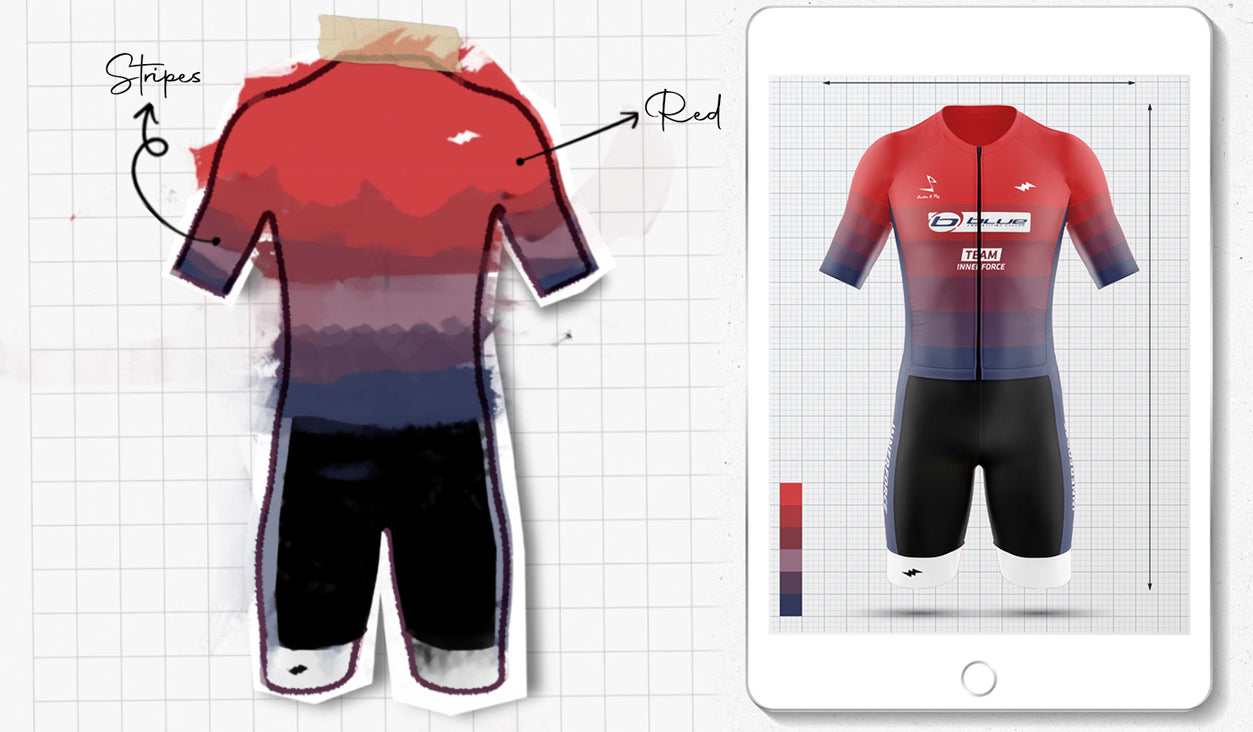
GEAR UP
MORE FROM THE BLOG
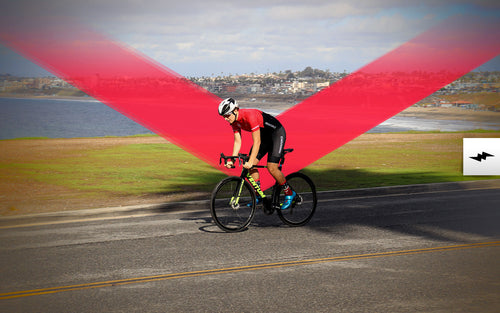
Solo Training; What You Gain By Training Alone
The virtues of training as a group are constantly touted by triathletes. The social aspect, being able to push each...
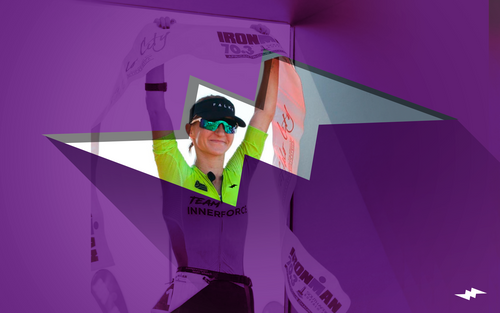
5 Tips for Regaining Motivation For Triathlon Training
Triathletes are often seen as superhuman fitness freaks who are willing to brave the cold and wet to go out...
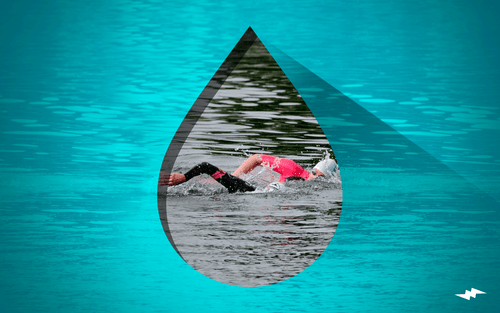
Common Freestyle mistakes and how to fix them
There is no hiding poor technique when it comes to the swim leg of a triathlon. It can mean the...
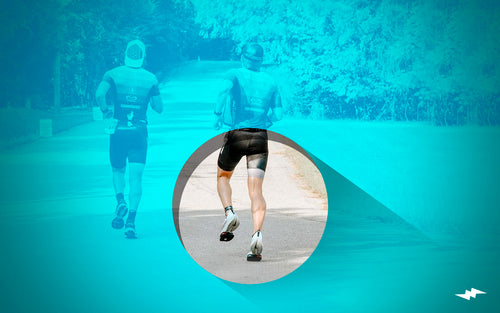
Is It OK To Heel Strike When Running
We all have our own unique way of running; from the way we hold our hands and arms all the...



